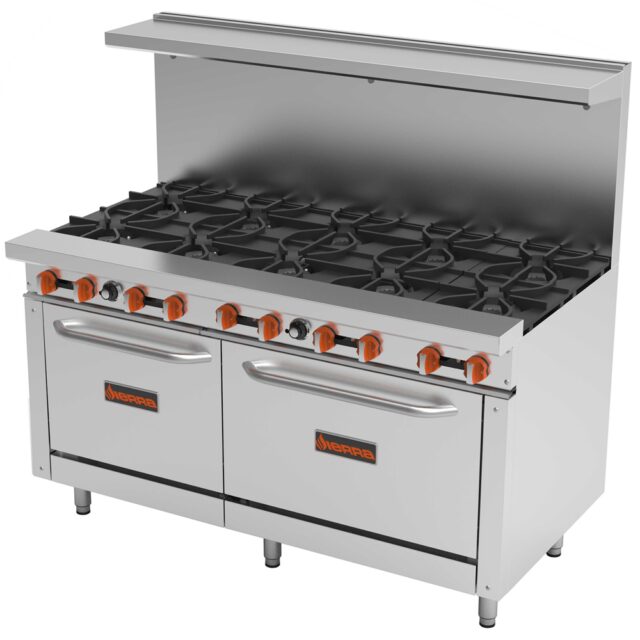When stepping into the heart of any thriving restaurant or catering business – the kitchen, one of the most critical appliances you will find is a commercial range. It’s more than just an appliance; it’s the powerhouse of the culinary world where chefs create their magic. But how does one navigate through the intricacies of selecting the best commercial range suitable for their enterprise?
Understanding Commercial Range
Before delving into the details, let’s first define what we mean by a commercial range. A commercial range is a versatile cooking appliance found in professional kitchens that combines an oven and stovetop in one integrated unit.
These units are designed to withstand high-volume usage and are more robust and efficient than their residential counterparts. They come in various sizes and configurations, enabling chefs to sauté, grill, broil, and bake, all on the same appliance.
Key Factors to Consider When Buying a Commercial Range
When buying a commercial ranges, several factors come into play. Let’s explore these key considerations in detail.
Size and Configuration
The size of the commercial range you select should ideally correspond to the size and needs of your kitchen. This includes not just the physical dimensions but also the number of burners and the configuration of the oven and stovetop.
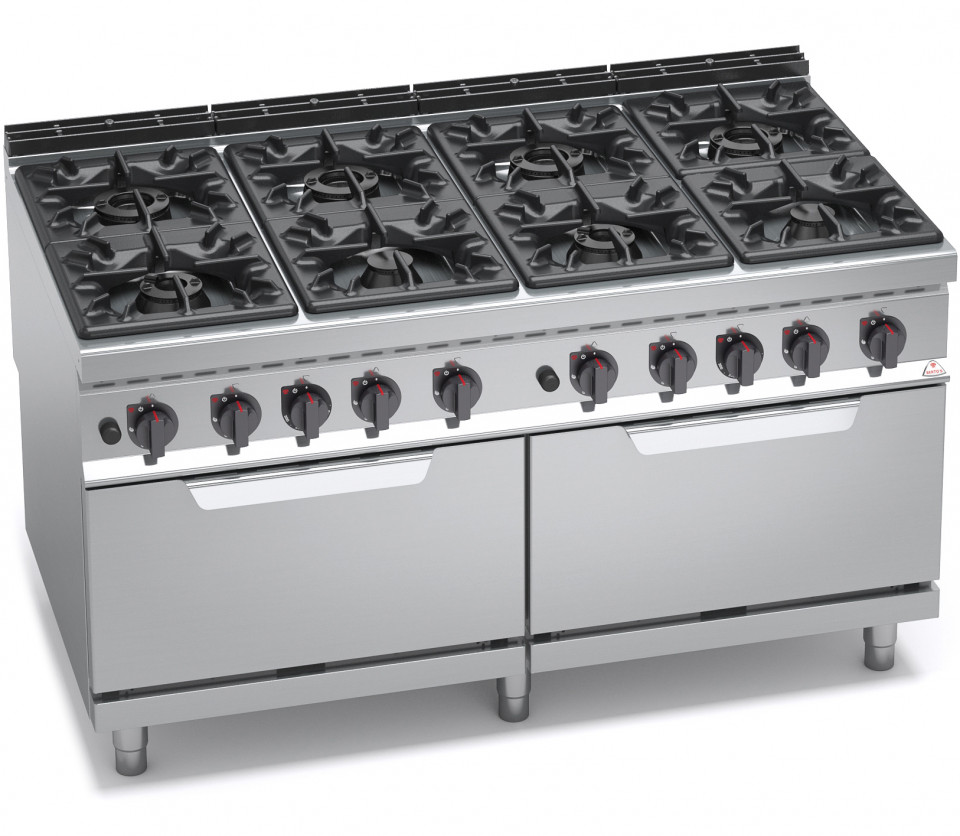
Burners
Commercial ranges can have anywhere from 2 to 10 burners. The number of burners you require would depend on the volume of food you need to prepare and the variety of dishes on your menu.
Oven/Stovetop Configuration
Depending on the type of cooking you do, you may choose a range with a griddle or a charbroiler. Some commercial ranges also come with double ovens or convection ovens for increased versatility.
Power Source
Commercial ranges can either be gas-powered or electric. Your choice will depend on availability, cost, performance, and preference.
Gas Ranges
These provide more precise control over temperature and heat up faster. However, they require a gas connection, and the open flame can be a safety concern.
Electric Ranges
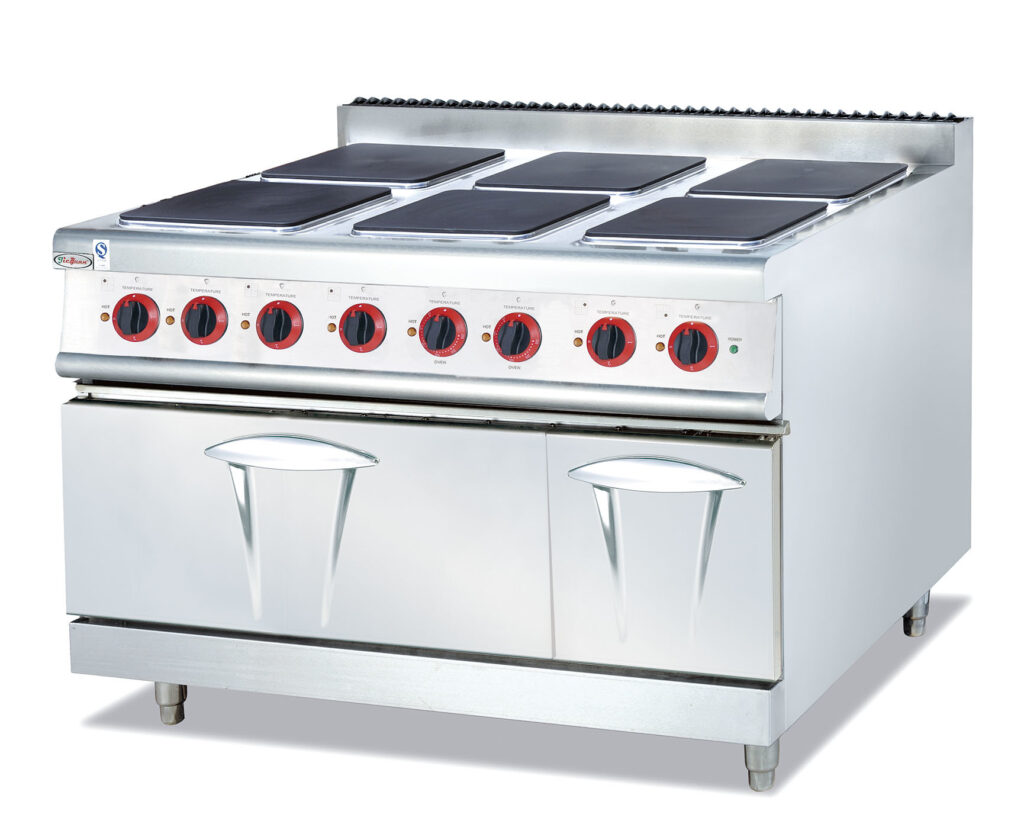
These are easier to clean and maintain, and they distribute heat more evenly in the oven. However, they are slower to heat up and cool down.
Performance and Features
Modern commercial ranges come with various performance features. Consider factors like heat output, fuel efficiency, pilot lights, continuous grates, and other unique features that can enhance your kitchen’s efficiency and safety.
Benefits of Investing in a High-Quality Commercial Range
Investing in a high-quality commercial range comes with several benefits. Here are a few reasons why it’s worth the investment:
- Enhanced cooking efficiency and versatility, allowing you to prepare a wider variety of dishes.
- Greater durability and lifespan, meaning less frequent replacements.
- Improved safety features, reducing the risk of accidents in the kitchen.
- Higher energy efficiency, leading to cost savings in the long run.
Potential Drawbacks of Commercial Ranges
While there are numerous benefits, it’s also important to consider the potential drawbacks of owning a commercial range.
They can be more expensive initially due to their higher quality and robustness. Commercial ranges require more energy to operate, which can lead to higher utility bills.
They also generate a significant amount of heat, which can contribute to a hotter kitchen environment. More complex models may require professional installation and maintenance.
Decoding the Types of Commercial Ranges
To make an informed decision, it’s crucial to understand the various types of commercial ranges available.
Standard Duty Range
Standard duty ranges are ideal for establishments with moderate cooking needs. These ranges are designed for roughly 6 hours of cooking per day, making them suitable for small restaurants, cafes, or bistros. While they may lack some of the advanced features of heavier-duty models, they offer solid performance at a more affordable price.
Heavy Duty Range
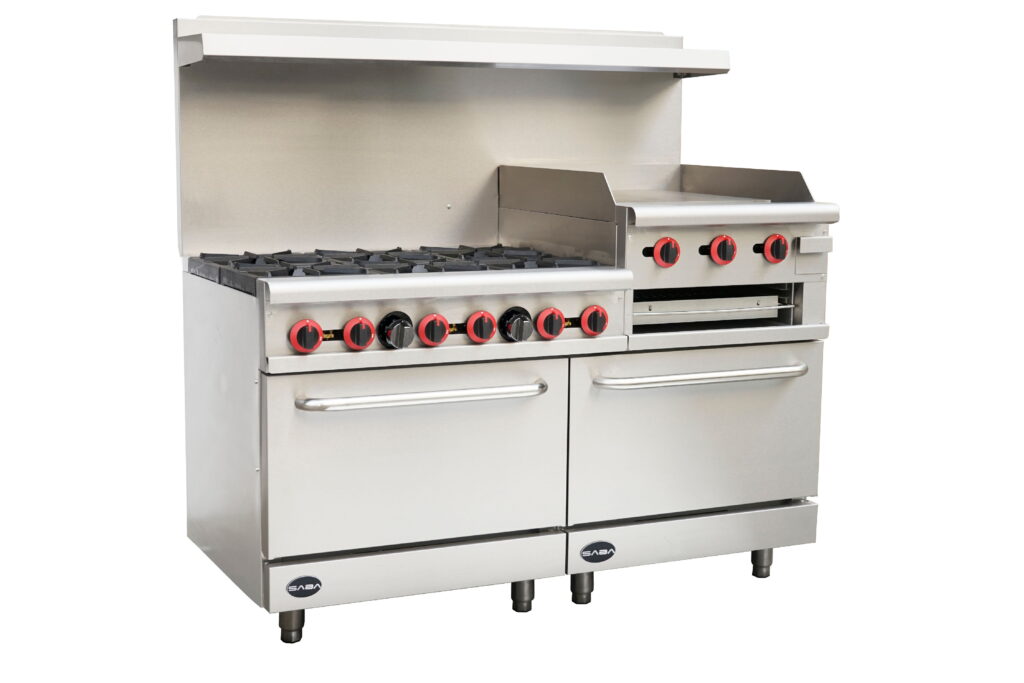
On the other hand, heavy-duty ranges are designed for operations with more intensive cooking needs. These ranges can handle continuous use throughout the day, making them the perfect choice for high-volume restaurants, hotels, or busy catering businesses. Heavy-duty ranges often have more burners and larger oven capacities and are typically more durable and efficient.
Specialty Range
Specialty ranges are tailored to specific cooking methods. These include wok ranges, with their high-powered burners for quick, intense cooking, and stock pot ranges, designed for long, slow simmering. Specialty ranges can be a valuable addition to your kitchen, particularly if you have a diverse menu that requires varied cooking techniques.
Tips to Maintain Your Commercial Range
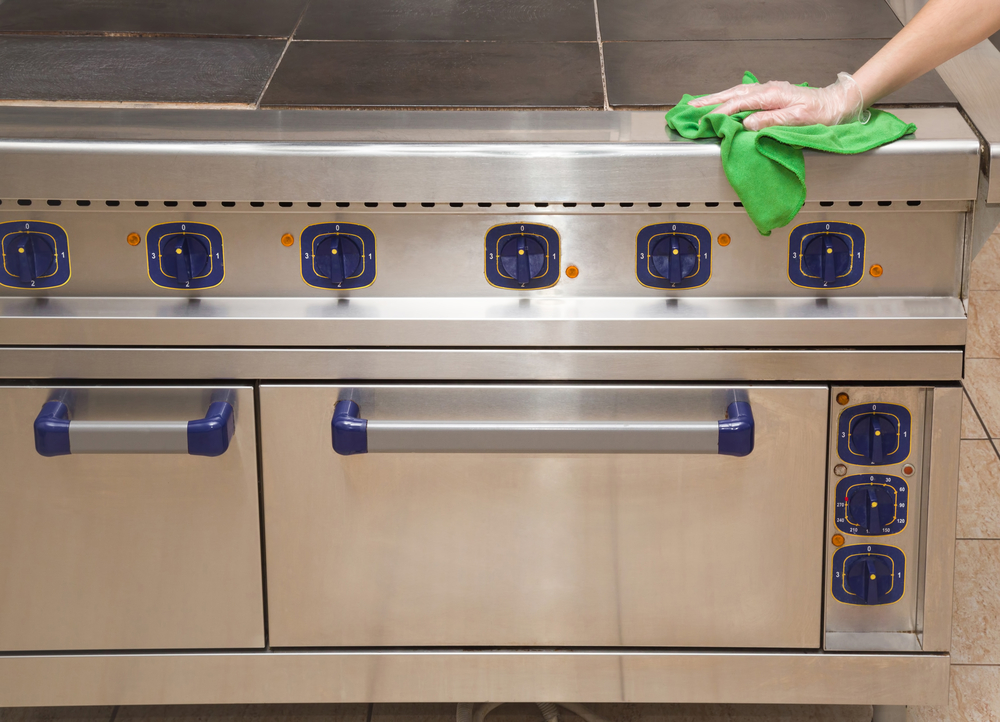
Once you’ve invested in a commercial range, it’s crucial to maintain it to prolong its lifespan and ensure it operates at peak efficiency. Here are some maintenance tips:
Regularly clean the range to prevent grease buildup. This includes the burners, grates, and oven interior.
Schedule professional maintenance checks at least once a year to catch any potential issues early.
Ensure the range’s ventilation system is clean and functioning correctly.
Train your staff on the proper use and care of the range to prevent unnecessary wear and tear.
Navigating the Purchase
Before you finalize your purchase, there are a few final things to consider:
Budget: Establish a budget and stick to it. Remember, a more expensive range isn’t always better; it needs to suit your specific needs.
Warranty: Check the warranty terms. A longer warranty period may indicate a higher quality product.
Seller Reputation: Buy from a reputable seller with good customer service. This will be invaluable if you encounter issues down the line.
Conclusion
In conclusion, investing in a commercial range is a significant decision that can greatly impact the functionality and efficiency of your kitchen. Therefore, understanding your specific needs and the range options available is crucial.
From size and power source to the types and maintenance of ranges, every detail matters. We hope this comprehensive guide serves as a valuable resource on your journey to acquiring the best commercial range for your business. Happy cooking!

